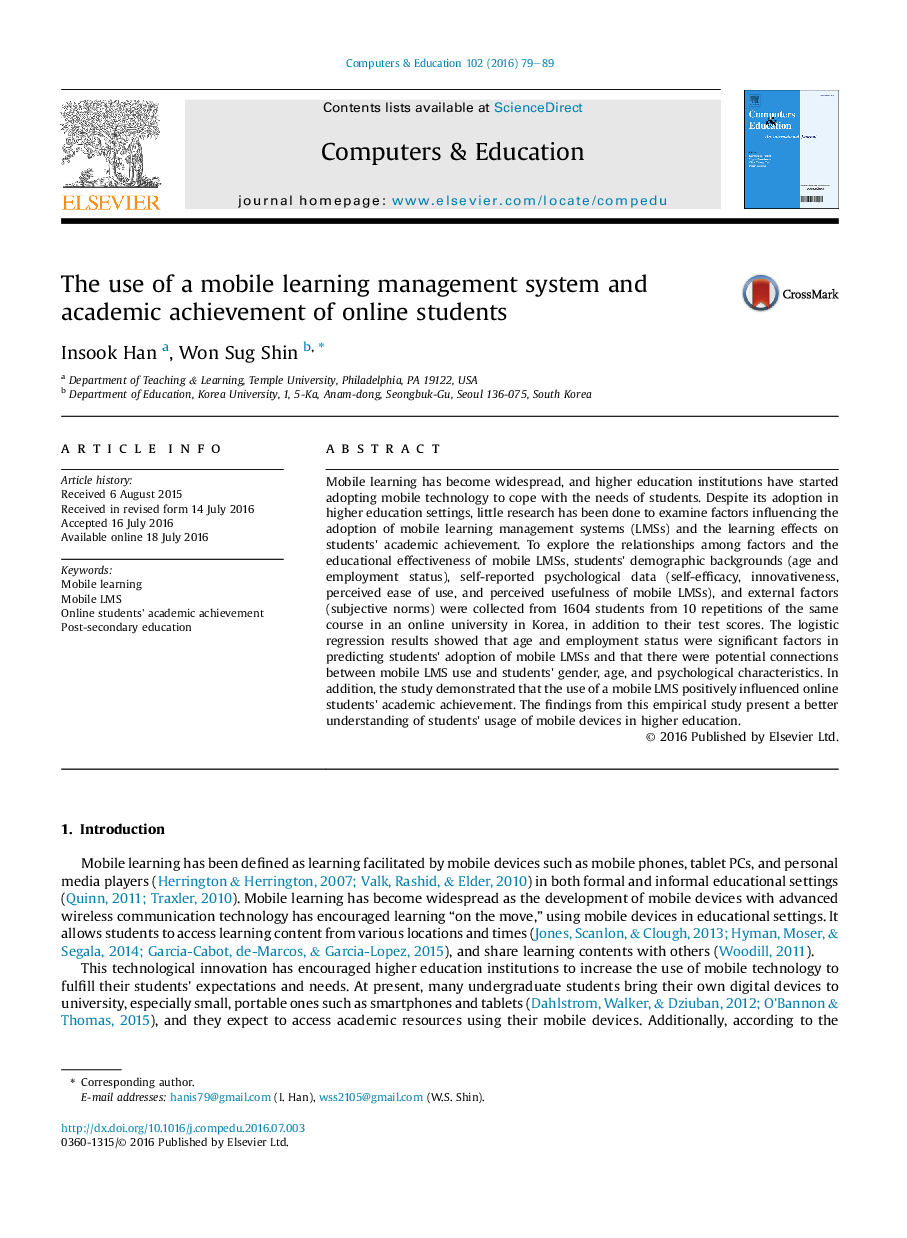| Article ID | Journal | Published Year | Pages | File Type |
|---|---|---|---|---|
| 348146 | Computers & Education | 2016 | 11 Pages |
•Factors influencing the adoption of mobile LMS were investigated.•The use of mobile LMS was affected by multi-dimensional characteristics of factors.•The use of mobile LMS had a positive relationship with students' achievement.
Mobile learning has become widespread, and higher education institutions have started adopting mobile technology to cope with the needs of students. Despite its adoption in higher education settings, little research has been done to examine factors influencing the adoption of mobile learning management systems (LMSs) and the learning effects on students' academic achievement. To explore the relationships among factors and the educational effectiveness of mobile LMSs, students' demographic backgrounds (age and employment status), self-reported psychological data (self-efficacy, innovativeness, perceived ease of use, and perceived usefulness of mobile LMSs), and external factors (subjective norms) were collected from 1604 students from 10 repetitions of the same course in an online university in Korea, in addition to their test scores. The logistic regression results showed that age and employment status were significant factors in predicting students' adoption of mobile LMSs and that there were potential connections between mobile LMS use and students' gender, age, and psychological characteristics. In addition, the study demonstrated that the use of a mobile LMS positively influenced online students' academic achievement. The findings from this empirical study present a better understanding of students' usage of mobile devices in higher education.
